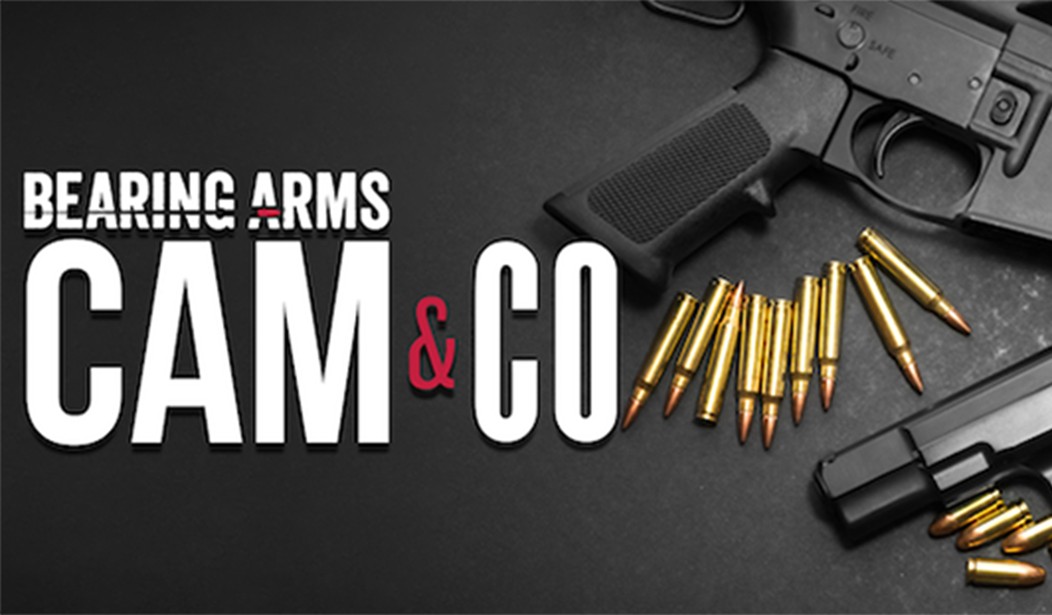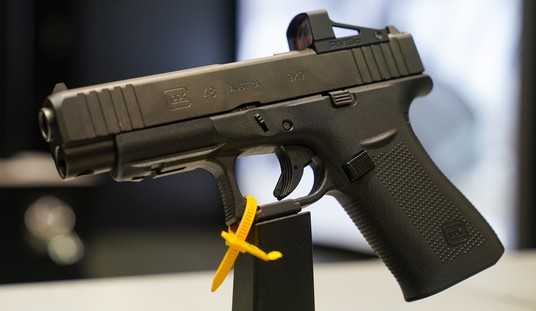On Thursday, the Supreme Court is set to consider whether to accept challenges to "assault weapons" bans in Illinois and Maryland at this week's conference. But that's not the only 2A issue coming before the justices this week. A case called Srour v. NYC is also scheduled for consideration in conference this week. That lawsuit is taking on New York City's "good moral character" standard for residents trying to exercise their right to keep a rifle or shotgun in their home; a statute found unconstitutional by a district court judge, but allowed to remain in effect thanks to an inexplicable decision by the Second Circuit Court of Appeals.
Attorney Amy Bellantoni first asked SCOTUS to intervene on behalf of her client back in March, but her request for an emergency application to vacate the Second Circuit's stay was summarily rejected by Justice Sonia Sotomayor on April 4th. The following week, Bellantoni resubmitted her request to Justice Clarence Thomas. Instead of accepting or rejecting the request, Thomas has submitted the question to the full Court.
In her initial request, Bellantoni notes that the district court judge who found New York's "good moral character" and "good cause to deny" clauses unconstitutional did so after the state failed to come up with a single historical analogue that could justify the broad and vague powers granted to the licensing authorities.
The district court went on to analogizing Respondents’ ‘moral character’requirement to the ‘proper cause’ factor for a concealed carry handgun license thatwas stricken by this Court in Bruen. Both statutes require individuals to “prove”something to a government official before being able to exercise a protected right.
Harkening to Bruen’s discussion contrasting outlier “may issue” regimes likeNew York’s, “under which authorities have discretion to deny concealed-carrylicenses even when the applicant satisfies the statutory criteria,” with “shall issue”regimes, “where authorities must issue concealed-carry licenses whenever applicants satisfy certain threshold requirements, without granting licensing officials discretion to deny licenses based on a perceived lack of need or suitability,” the district court correctly observed that Respondents’ regulations “land very close to the problematic “may issue” laws criticized in Bruen.”
... The district court concluded that 10-303(a)(2) and (a)(9) “suffer from the verysame constitutional flaws under Bruen.” Observing that Section 10-303 fails to define “good moral character” in further detail, the court held that “without doubt, the very notions of “good moral character” and “good cause” are inherently exceedingly broad and discretionary. Someone may be deemed to have good moral character by one person, yet a very morally flawed character by another. Such unfettered discretion is hard, if not impossible, to reconcile with Bruen.”
The district court then turned to whether Respondents met their burden under the Bruen test, but found they failed to produce any historical analogue for investing officials with the broad discretion to restrict an individual’s Second Amendment rights based on a lack of moral character.
Respondents offered examples of criminal laws, loyalty oath requirements, and surety statutes -- laws preventing “dangerous or potentially dangerous” people from possessing firearms, which the district court found are “hardly analogous to denying someone their Second Amendment’s rights based on a City official’s discretionary determination that that person “lacks good moral character”…The latter is far broader and sweeps in significantly more conduct.”
When New York City officials appealed the judge's order to the Second Circuit, they quickly got the relief they were asking. A three-judge panel stayed the lower court decision and allowed the NYPD to continue to use "good moral character" (or the lack thereof) as a reason to approve or deny permits, pointing to a similar preliminary ruling regarding pistol licenses that are being challenged as part of Antonyuk and other lawsuits taking on the state's Concealed Carry Improvement Act. But Bellantoni argues that the Second Circuit provided no real analysis before reaching its decision. If it had, Bellantoni believes the panel would have had no real choice but to uphold the district court's finding.
Had “due consideration” been given, the Second Circuit would have realized that Antonyuk (i) is not binding on the appeal, as it involved review of a preliminary injunction, not a merits-based determination; (ii) its ‘moral character’ analysis is confined to handgun licensing (plaintiffs challenged the “Concealed Carry Improvement Act”); (iii) New York State’s moral character statute for handguns is markedly narrower than NYC Admin. Code 10-303(a)(2) (still, any amount of discretion conflicts with the plain text); and (iv) contains no analysis of this Nation’s historical traditions of regulating rifles and shotguns, which is decidedly sparse. To be sure, when it comes to long guns, even the New York State Legislature acknowledged in 1965 that there was no ‘National tradition’ of licensing rifles and shotguns, never mind disarming the entire citizenry until a government official feels they possess “good moral character.”
We have no way of knowing which, if any, of the Second Amendment cases that are pending in conference will be granted cert by the Supreme Court, but there's a strong argument to be made in favor of accepting all three of the legal challenges that will be discussed behind closed doors this week. The Srour case may be the most limited in terms of impact, given that NYC is an outlier when it comes to its gun licensing laws, but there are still millions of New York City residents who are being subjected to the arbitrary and capricious whims of the NYPD Licensing Bureau before they can exercise a fundamental civil right. All three cases are worthy of the Court's attention, and the longer the justices delay in hearing them, the worse these deprivations of liberty become.









Join the conversation as a VIP Member